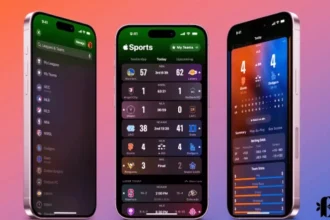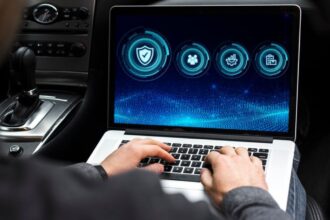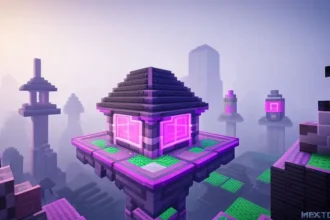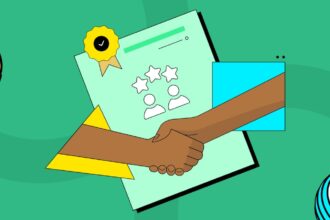Flashcards are a simple yet powerful tool that can revolutionize the way you study. From memorizing vocabulary and learning new concepts to preparing for exams, flashcards help you break down complex information into manageable parts. They are versatile, customizable, and adaptable to any subject, making them an invaluable resource for students, professionals, and lifelong learners. In this article, we will explore why flashcards are so effective, provide tips on creating impactful cards, and share strategies to integrate them into your study routine for maximum success.
- Why Flashcards Work: The Science Behind the Method
- Tips for Creating Effective Flashcards
- 1. Focus on One Concept Per Card
- 2. Use Clear, Concise Language
- 3. Incorporate Visuals
- 4. Include Real-World Examples
- Best Practices for Using Flashcards
- 1. Implement Spaced Repetition
- 2. Actively Test Yourself
- 3. Shuffle Your Deck Frequently
- 4. Track Your Progress
- Digital Flashcards: Modernizing Your Study Routine
- Common Mistakes to Avoid
- Integrating Flashcards into Your Study Routine
- Conclusion
Why Flashcards Work: The Science Behind the Method
Flashcards are highly effective because they engage the brain in active recall and spaced repetition—two critical learning strategies. Active recall forces you to retrieve information from memory without prompts, strengthening neural connections and enhancing retention. Spaced repetition involves reviewing material at strategic intervals, which helps transfer knowledge from short-term to long-term memory. Together, these techniques make flashcards one of the most efficient ways to learn and retain new information.
Benefits of Using Flashcards
- Enhanced Retention: Flashcards help move information into long-term memory, making it easier to recall facts and concepts when needed.
- Efficient Learning: By focusing on key points, flashcards allow you to target essential information, making your study sessions more productive.
- Customizable Content: Flashcards can be adapted to any subject or learning style, enabling you to create decks that address your specific needs.
- Portable Study Tool: Flashcards are easy to carry, allowing you to study anytime, anywhere—whether on the go, during breaks, or at home.
Tips for Creating Effective Flashcards
The quality of your flashcards directly impacts their effectiveness. Here are some tips to help you create flashcards that maximize your learning potential:
1. Focus on One Concept Per Card
Each flashcard should cover a single question, term, or idea. Keeping cards focused prevents cognitive overload and ensures that the information is easy to recall.
2. Use Clear, Concise Language
Flashcards are meant to trigger your memory quickly, so keep the text short and straightforward. Use simple language that you understand, avoiding complex jargon unless necessary.
3. Incorporate Visuals
Adding visuals such as images, diagrams, or symbols can greatly enhance memory retention. Visual aids create associations in the brain that make information easier to remember.
4. Include Real-World Examples
Examples help contextualize information, making abstract concepts more relatable. Use scenarios that connect the content to your everyday experiences for better understanding.
Best Practices for Using Flashcards
To get the most out of your flashcards, it’s essential to use them consistently and strategically. Here are some best practices to help you optimize your study sessions:
1. Implement Spaced Repetition
Spaced repetition involves reviewing flashcards at increasing intervals. This technique helps reinforce memory and ensures that you revisit information just as you’re about to forget it, strengthening retention.
2. Actively Test Yourself
Rather than passively flipping through flashcards, actively test yourself on the information. Try to recall the answer before looking at the back of the card, engaging your memory and enhancing learning.
3. Shuffle Your Deck Frequently
Avoid memorizing the order of your flashcards by shuffling them regularly. This practice forces you to focus on learning the content rather than relying on patterns or sequences.
4. Track Your Progress
Pay attention to which flashcards you find easy and which are more challenging. Spend extra time on difficult cards to strengthen your understanding of weaker areas.
Middle Paragraph:
When choosing a digital flashcard app, two popular options are Anki and Quizlet. Deciding between Anki vs Quizlet depends on your specific needs and learning style. Anki uses a sophisticated spaced repetition algorithm that adjusts the frequency of card reviews based on your performance, making it ideal for deep learning and long-term retention. Quizlet, on the other hand, offers a user-friendly interface with features like games and study modes that make learning more engaging. Both platforms have unique strengths, so selecting the right one can enhance your flashcard study experience.
Digital Flashcards: Modernizing Your Study Routine
Digital flashcards offer additional benefits that traditional paper cards cannot, such as enhanced interactivity, automated scheduling, and performance tracking. Apps like Anki, Quizlet, and Brainscape provide platforms where you can create, organize, and review flashcards on the go, turning spare moments into productive study time.
Advantages of Digital Flashcards
- Accessibility: Digital flashcards can be accessed on your smartphone, tablet, or computer, allowing you to study anytime and anywhere.
- Automated Spacing: Many digital apps use algorithms to automatically schedule review sessions, making spaced repetition easy to implement.
- Interactive Features: Digital flashcards can include multimedia elements like images, audio, and videos, making learning more dynamic and engaging.
- Performance Analytics: Most flashcard apps offer analytics that help you track your progress, identify strengths and weaknesses, and adjust your study strategy accordingly.
Common Mistakes to Avoid
While flashcards are highly effective, certain common mistakes can reduce their impact. Here are some pitfalls to avoid:
- Cramming with Flashcards: Flashcards are most effective when used consistently over time, not for last-minute cramming. Regular use helps build a strong foundation of knowledge.
- Skipping Difficult Cards: It’s tempting to skip challenging cards, but these are the ones that need the most attention. Focus on mastering difficult concepts for the best results.
- Inconsistent Review: Regular review sessions are crucial for reinforcing information. Make reviewing a consistent part of your study routine to maximize retention.
Integrating Flashcards into Your Study Routine
Flashcards are most effective when they are a regular part of your study habits. Here are some tips for integrating flashcards into your daily routine:
- Daily Reviews: Set aside dedicated time each day to review your flashcards, even if it’s just for a few minutes. Consistent exposure helps keep the material fresh.
- Mix Subjects: Keep your study sessions interesting by mixing different subjects. This approach challenges your brain and prevents monotony.
- Study with Friends: Peer testing can add an interactive element to your study sessions. Quiz each other using flashcards for a more engaging experience.
Conclusion
Flashcards are a versatile and powerful study tool that can significantly boost your learning efficiency and help you achieve study success. By engaging active recall, implementing spaced repetition, and utilizing digital platforms like Anki and Quizlet, flashcards can transform your study routine and enhance your retention. Whether you’re preparing for exams, learning a new skill, or mastering a language, flashcards provide an adaptable method for improving your study outcomes. Start using flashcards today, and unlock the full potential of this simple yet effective learning tool.

















